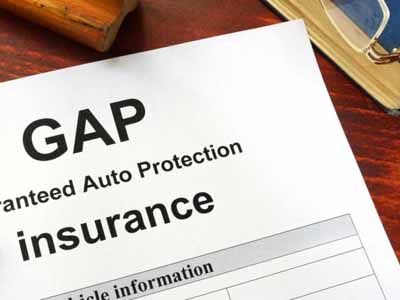Understanding GAP Insurance: Bridging the Financial Gap in Auto Coverage
You may have heard this coverage referred to as ‘gap insurance’ whenever you’ve gone to buy a new automobile. Typically, automobile insurance covers your car’s actual cash value, but gap insurance picks up where standard contracts leave off: should your vehicle be totaled. By the end of this article, you’ll learn what gap insurance is, why it matters, how it functions, and who might gain from this form of supplemental coverage. Knowing more about gap insurance can ensure you are financially safe, and help you have peace of mind the next time you get behind the wheel of your car.
What is Gap Insurance? Gap insurance, also known as guaranteed asset protection insurance, is an optional coverage that fills the financial gap between your car’s actual cash value and the remaining balance on your auto loan or lease. It protects you from having to pay the balance of the loan remaining on your auto loan or lease if you’re in accident, theft or other total loss.
For Whom Would Gap Insurance Make Sense? Gap insurance makes sense for anyone who finances or leases a new car with little or no money down, with a loan or lease term that’s long, and with a car that will depreciate quickly. In short, a gap payment occurs when a loss from a total-loss claim results in negative equity – meaning the car’s value on paper is less than the amount owed.
Gap insurance and leased vehicles: This is common in leasing, where a leasing company will require the lessee to add gap insurance to the lease, and it is paid for with lease payments.
Buying gap insurance: You can buy gap insurance from your auto dealer, insurance company or a gap insurance company that specializes in this type of policy. It makes sense to shop around at different places to check prices and the specifics of the coverage.
How long does gap insurance last? Gap insurance is available for the period of time you owe more to the auto loan or lease than you would be paid by your car insurance for the vehicle. That usually applies only during the first few years of a car loan or lease, while the loan balance is much larger than the value of the car. As time passes on and your car loses value, the gap insurance can become less impactful.
Gap insurance offers financial protection in the event your car is declared a total loss. That means that gap insurance would pay that ‘gap’ amount between your vehicle’s actual cash value and the amount you owe on the car. Whether you’re looking to buy a new car any time soon or just purchased a new vehicle recently, here’s why you need to know what gap insurance is and get it to protect yourself and your finances as you drive off that car lot.














